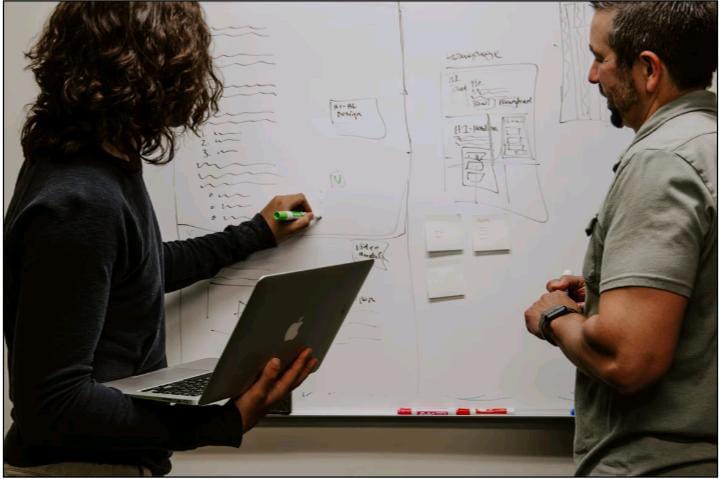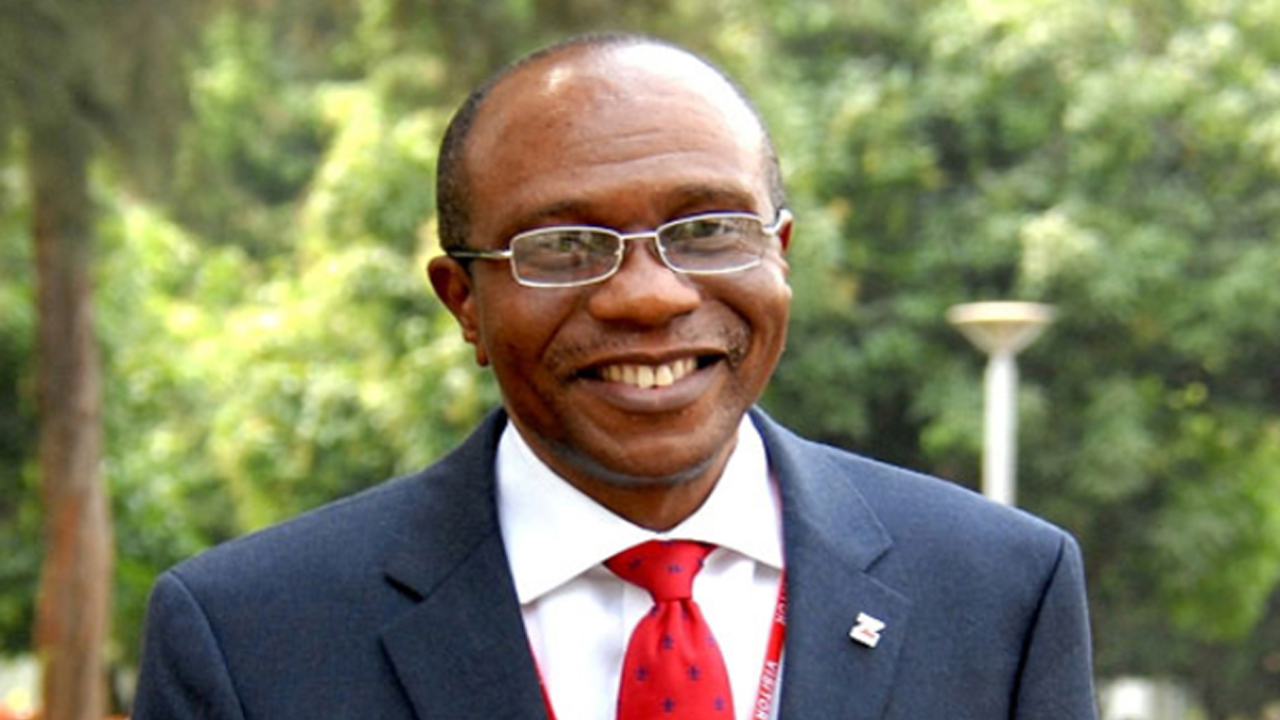Since the lockdown began on account of the global coronavirus pandemic, online meetings and virtual events to last a life time have taken place. This new cultural moment has inspired what is now popularly called “new normal” — a brand new world that is creating endless possibilities for online engagements and increasing opportunities for e-commerce. Business survival now depends on pivoting to areas where these opportunities exist.
Google, the number one search engine brand in the world, just announced that its employees should work from home until June 2021. Previously, Twitter made a similar announcement. It is called remote working. The Corporate Affairs Commission (CAC) in a paid advertisement said customers will no longer be required to physically visit the Commission’s premises in Abuja and Lagos to carry out official transaction. They should now send and receive documents from the Commission through designated courier companies due to COVID-19 pandemic.
The context of new normal needs to be properly understood: COVID-19 is going to be with us for a long time, whether we like it or not. It will be with us like cancer, malaria, flu, etc – it is in our best interest to adjust to the new life of wearing face masks and maintaining social distancing. By the way, we are still awaiting the cure and vaccine for coronavirus disease. For example, when the football leagues returned, the stands were completely empty to prevent the community spread of the virus. It was unbelievable but it was because of strict compliance by the football associations with the new normal.
Some of the webinars I have attended are essentially business series providing useful hints on how business owners can survive the turbulent economic season. “Everything is on hold until further notice,” a multinational client told me when the lockdown scenario began. If big organisations are feeling the impact of COVID-19, what would happen to SMEs? In chapter nine of the book, ‘Burn the business plan’ by Carl Schramm, a professor at Syracuse University, New York and leading authority in Expeditionary Economics, the author cautioned that we should not waste time doing things that don’t work.
Under the new normal, business owners are adapting to changes and discarding things that no longer work – it is time to embrace new business models. As an advocate of multiple streams of income, I can tell you for free that most of our businesses have been badly hit by the raging coronavirus disease and we are left with no choice but to re-invent ourselves by creating new digital platforms.
On May 7, 2020, a webinar was organised by BigWideSky, a human business consultancy based in St Louis, Missouri, USA that helps organisations design integral solutions to crises of change. The guest speaker was Prof Benjamin Akande, a Nigerian-American who is the 9th President of Champlain College in Burlington, Vermont, USA. Prof Akande is a respected economist, scholar and global consultant to Fortune 500 companies and institutions in the areas of strategy, leadership development, corporate responsibility and market positioning. From April 2018 to April 2020, he served as Assistant Vice Chancellor of International Programmes (Africa); Director of the Africa Initiative, and Associate Director of the Global Health Centre at Washington University in St Louis.
Prof Akande spoke on the topic, “How to stay relevant during and post COVID-19 pandemic”. In an email before the webinar, he noted that beyond its danger as an infectious agent, COVID-19 has torn apart our plans for the future. “It has laid to waste our projections for what we thought would be possible in 2020,” Prof Akande wrote in the email. His presentation outlined the forces that have the most disruptive power for shaping an organisation’s future relevance and what you can do to turn constraints into possibilities.
Apart from remote working which is now our new reality, Prof Akande said the future is no longer what it used to be – we have to think of how to adjust and take advantage of the opportunities created by the global pandemic. He cited the 5-R decision process proposed by McKinsey, a renowned American management consulting firm, as a survival strategy for organisations to navigate their ways out of the global economic crisis. The order of the 5-R process is: Resolve, Resilience, Return, Re-imagination and Reform.
To remain relevant in business, organisations have to re-invent themselves, change what they do and how they do it so that they can respond to the changing needs of consumers. The organisations do not change; it is the response mechanisms and decision making process that change. The response strategy should articulate short, medium and long terms goals but, more importantly, adjustments can be made along the way when and where necessary.
Prof Akande stated that the global pandemic has created what he called a “new global public health system” where “business” and “healthcare” have become two sides of the same coin. In other words, he was alluding to a new value chain of products and services embedded in an “organic ecosystem” tied to the coronavirus outbreak. Since then, the world has been grappling with a major public health crisis which has spawned a world of 3Ts: testing, tracing and treatment.
Our new normal means we now mostly work from home and meetings are conducted through teleconferencing. Digital platforms have become central to every interaction because consumers prefer contactless delivery system. It explains why CAC does not want customers coming to their offices anymore until further notice. As we pivot and adjust our business models, Prof Akande said competitive analysis has become even more relevant in our new normal. What makes your brand unique and special? What is your competitive advantage? In what areas are you vulnerable? These are issues to address to so that you do not open your flanks for competitors to attack and gain advantage. Commercial organisations should expect more encroachment from competitors as the fight for relevance intensifies.
At this rate, success may not be guaranteed, no matter how you plan because of the uncertainties in the economic environment. But it is important to have a clean break with the past and have a plan that you can adjust. The looming recession is affecting the purchasing powers of consumers and the implication is that the demand for goods and services will drop – consumers have reduced their discretionary spending due to the public health crisis and wanting something is different from demanding it. In this situation, Prof Akande said affordability is a crucial factor in the demand and supply chain, and how business organisations respond to the changing needs of consumers from the perspective of a competitive landscape will determine the new market leaders. When demand drops, margins will also reduce with a corresponding impact on market shares.
What is the way out? The guest speaker recommended more efficient processes, constant innovation, adapting to changes and using technology to scale. The new normal is actually another way of saying there are new ways of doing old things and young university graduates will be key drivers of the new cultural moment. As Prof Akande puts it, any organisation that refuses to adjust will become an ”organisational hospice”.
From all indications, it will take some time to re-build consumer confidence as a result of the devastating impact of coronavirus disease. What matters more to consumers is their health safety and avoiding the virus attack. Prof Akande also advised organisations to come up with strong re-entry strategies such as creating “blue oceans” where they can focus on their competitive advantages.
In addition, they should be prepared to avoid any surprise. The best way to manage the uncertainties around us during the COVID-19 season is to embrace change and spot the best opportunities – they will be visible but not obvious, Prof Akande hinted. Organisations are also encouraged to be bold and creative, and they must find a way to create the future. The good news is that in the midst of these uncertainties, some organisations will still find success because they adopted the right strategy.
At another forum organised remotely by the Lagos Island Chapter of the National Institute of Marketing of Nigeria (NIMN) when it was inaugurated on June 6, 2020, Emeka Oparah, a long standing professional colleague who is also the vice president of Corporate Communications and CSR at Airtel, was the guest speaker. He spoke on the topic, “The New Normal: Re-invention, Recovery and Resurgence — Changes and how brands adapt”. This theme is resonating across the business world courtesy of McKinsey. In his introduction, Oparah said coronavirus is going nowhere. “The world will continue to reverberate with it for another two to three years. It will mutate from being a pandemic to endemic – meaning we would have to live with it forever,” Oparah told his audience via Zoom.
In his insightful presentation which business owners will find helpful, Oparah highlighted five key focus areas for marketers to adopt in an out rightly disrupted world: contactless consumer engagement, a new advertising model, social media relations and social listening, ease of doing business and big data. Due to social distancing, for example, consumer behaviour will change; remote transactions are now preferred. Our banks have witnessed increased ATM and online transactions since the lock down began and where you can, avoid large crowds at the banks. Oparah also noted that more and more people are shopping online because they want to avoid the shopping malls and this trend will continue. When you shop online, your goods, mostly groceries, are delivered to your home or preferred location.
The public relations expert also challenged marketers to come up with new advertising models at a time the news media is dominated by messages on coronavirus. Since people are spending more time at home, advertisers will be forced to spend their money on television and online. With your smart phone or computer, you are literally connected to the world. Social media marketing has also become an effective tool for promoting businesses to reach your target audience and create awareness for your product or service, and you ignore it at your own peril. You can actually run your business remotely without in-person meetings or going to the bank and it has the advantage of reducing your business costs.
Another way we can do business differently, according to Oparah, is to generate customer driven insights and data based on market intelligence reports. Given his telecoms background, he explained that data is a strategic resource which helps organisations to plan, make better decisions and enhance the experience of their customers. In addition, data guides marketers to follow the footprints of existing and potential customers. “The world is so interconnected that once you visit an online shop, you will begin to see their adverts on your social media timeline, Oparah,” added.
With increasing online engagements, the internet, social media and your smart phone are the biggest enablers. Your smart phone is your office, news and social media portal, business tool and bank – all at the same time. Once you have access to the internet, your smart phone and laptop become your best companions under the new normal. Since the lockdown began, I have been working remotely most of the time.
Both presentations revealed that the world has changed and we should adapt to the changes for businesses to survive. We should also be consumer-centric in our approach by giving consumers what they want and how they want it. Another take away from the speakers was that we should learn to keep our costs as low as possible and discard the things that are not working. In addition, it is helpful to become more familiar with social media marketing tools and, if necessary, acquire new skills in digital marketing. Under the new normal, it makes a lot of sense to consider the new health dynamics – for both employees and customers’ safety — and see how contactless delivery systems fit into in our plans going forward.
Braimah is a PR and marketing strategist based in Lagos.









